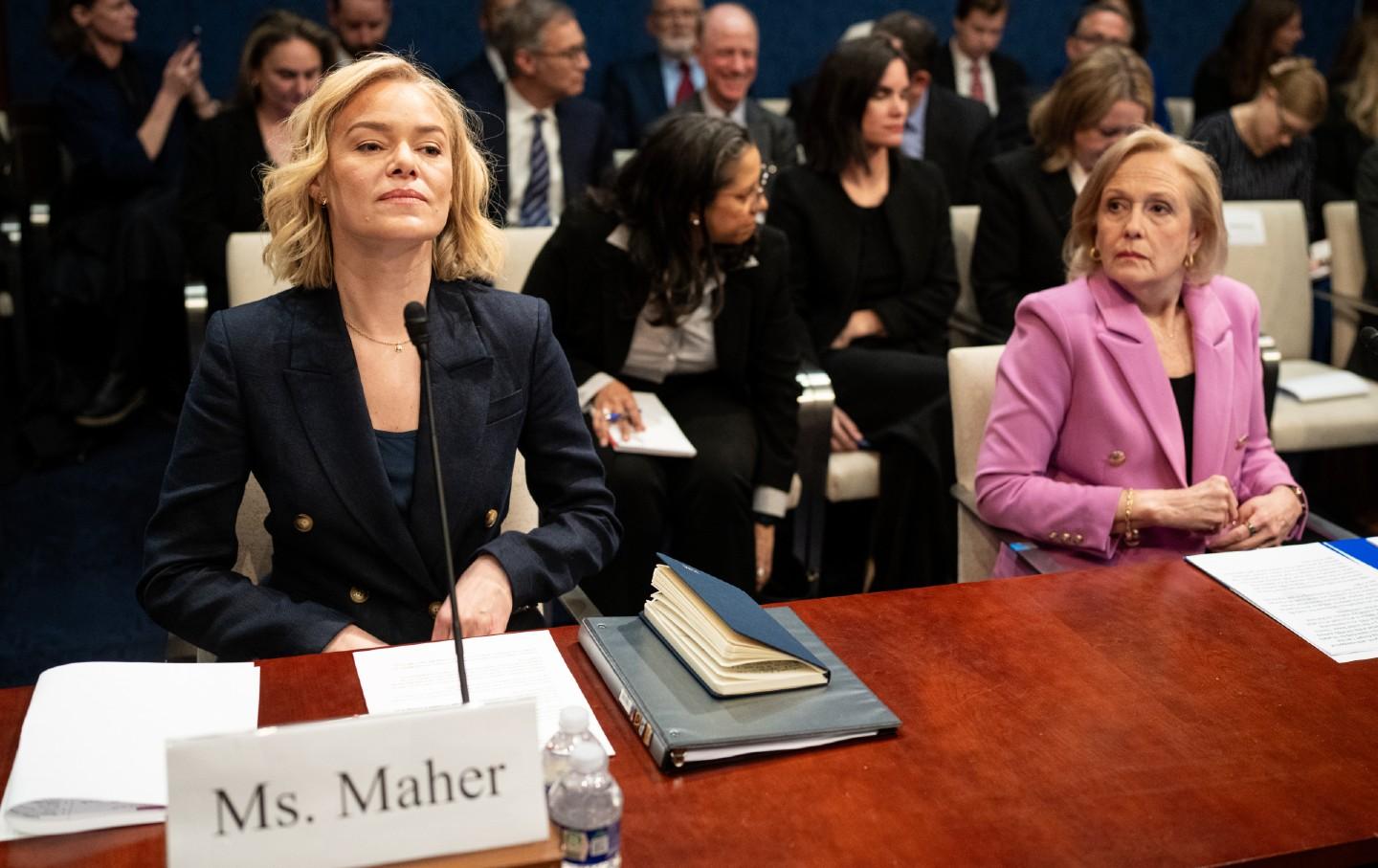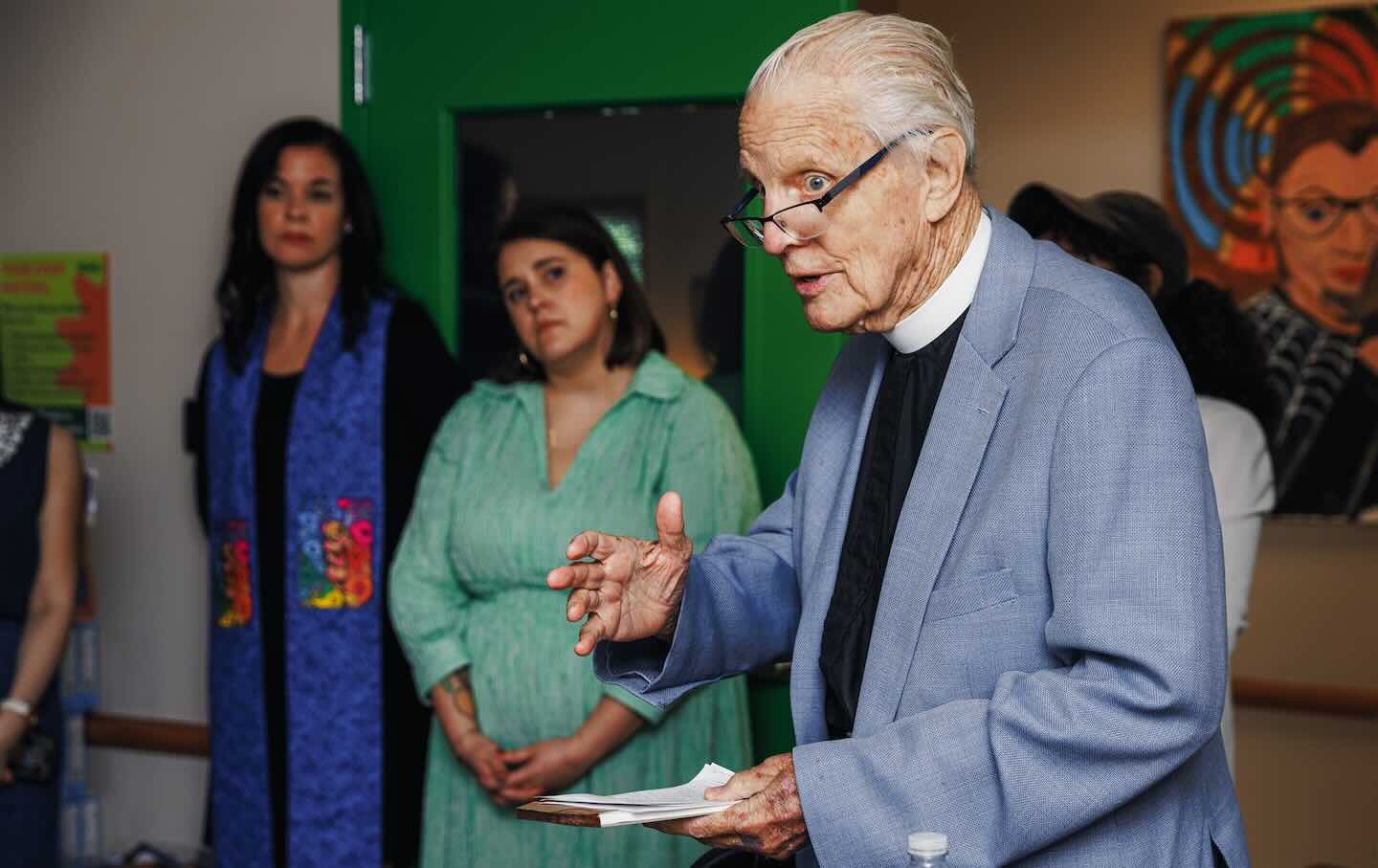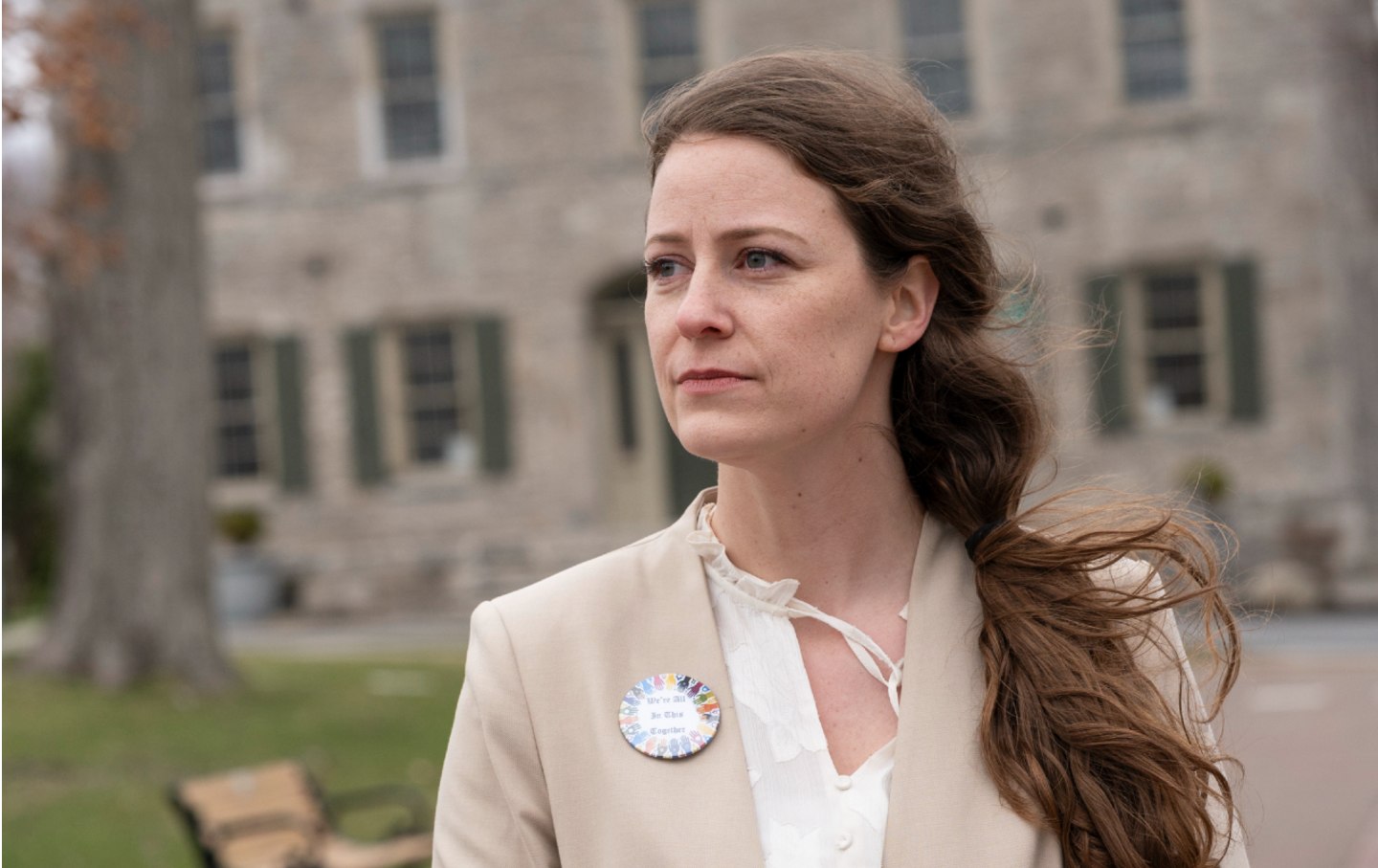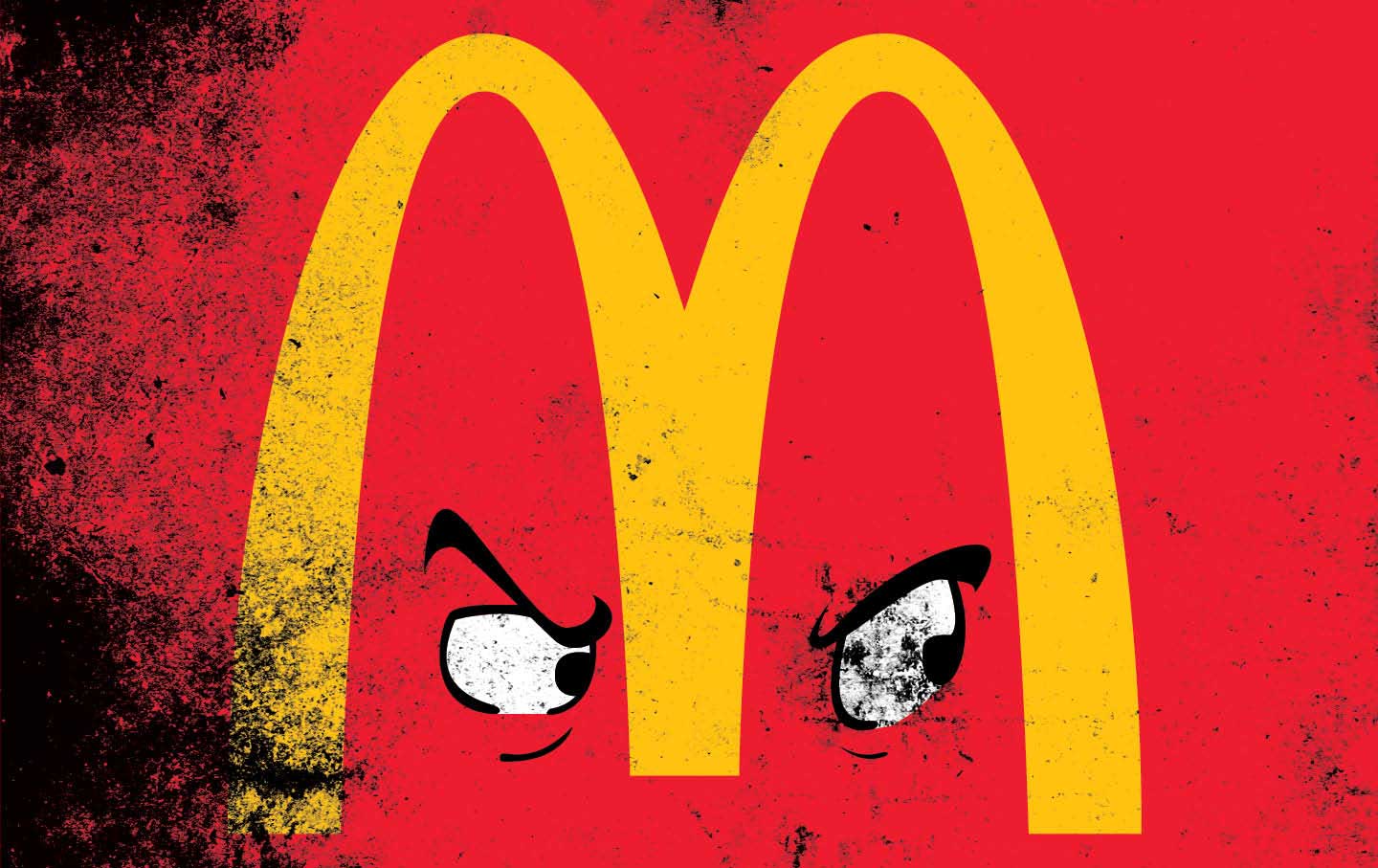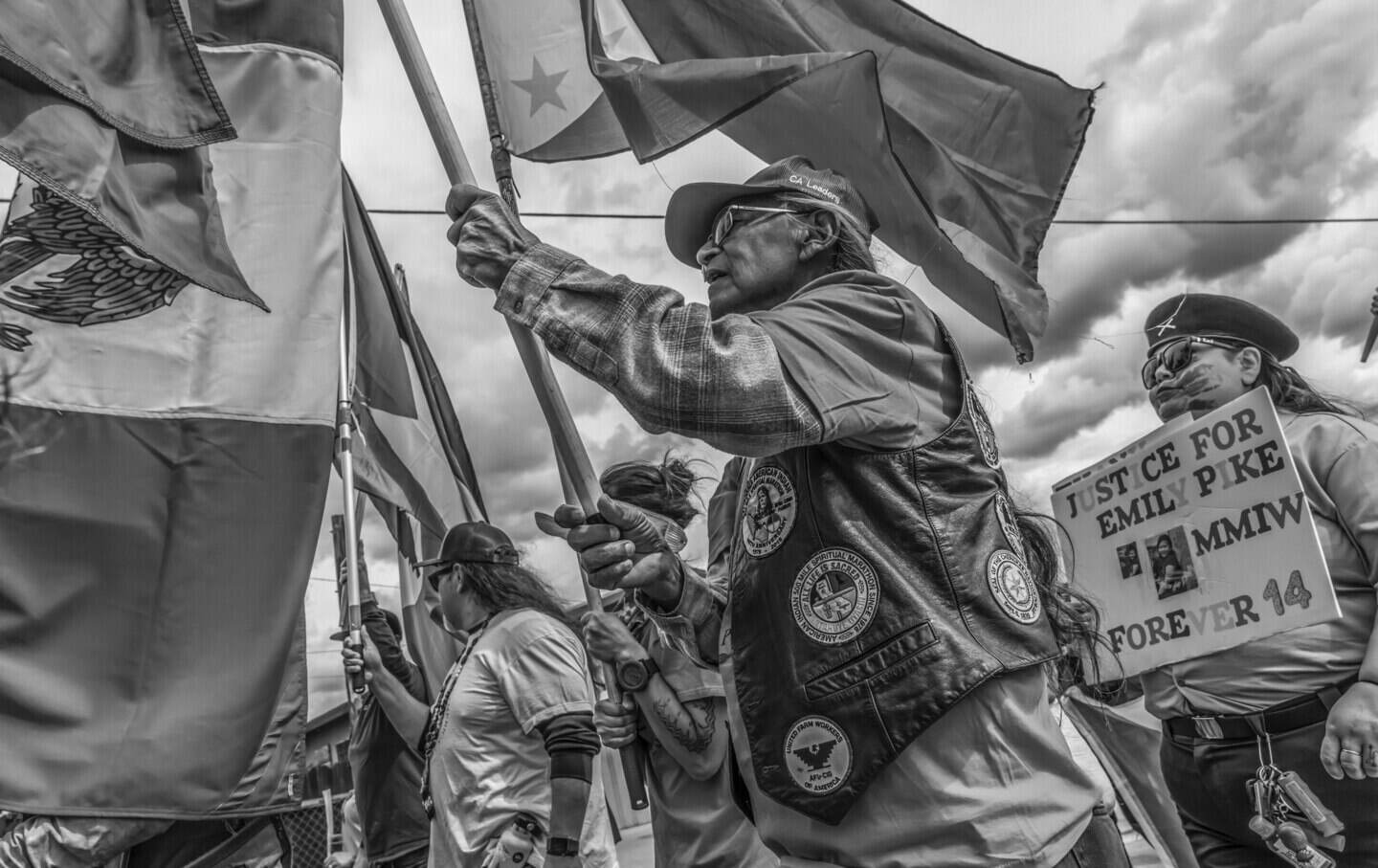Abortion Took Center Stage at the Debate, but Queering Reproductive Justice Must Be the Goal
If LGBTQIA+ communities are not centered in the fight for justice, our communities will never be free.
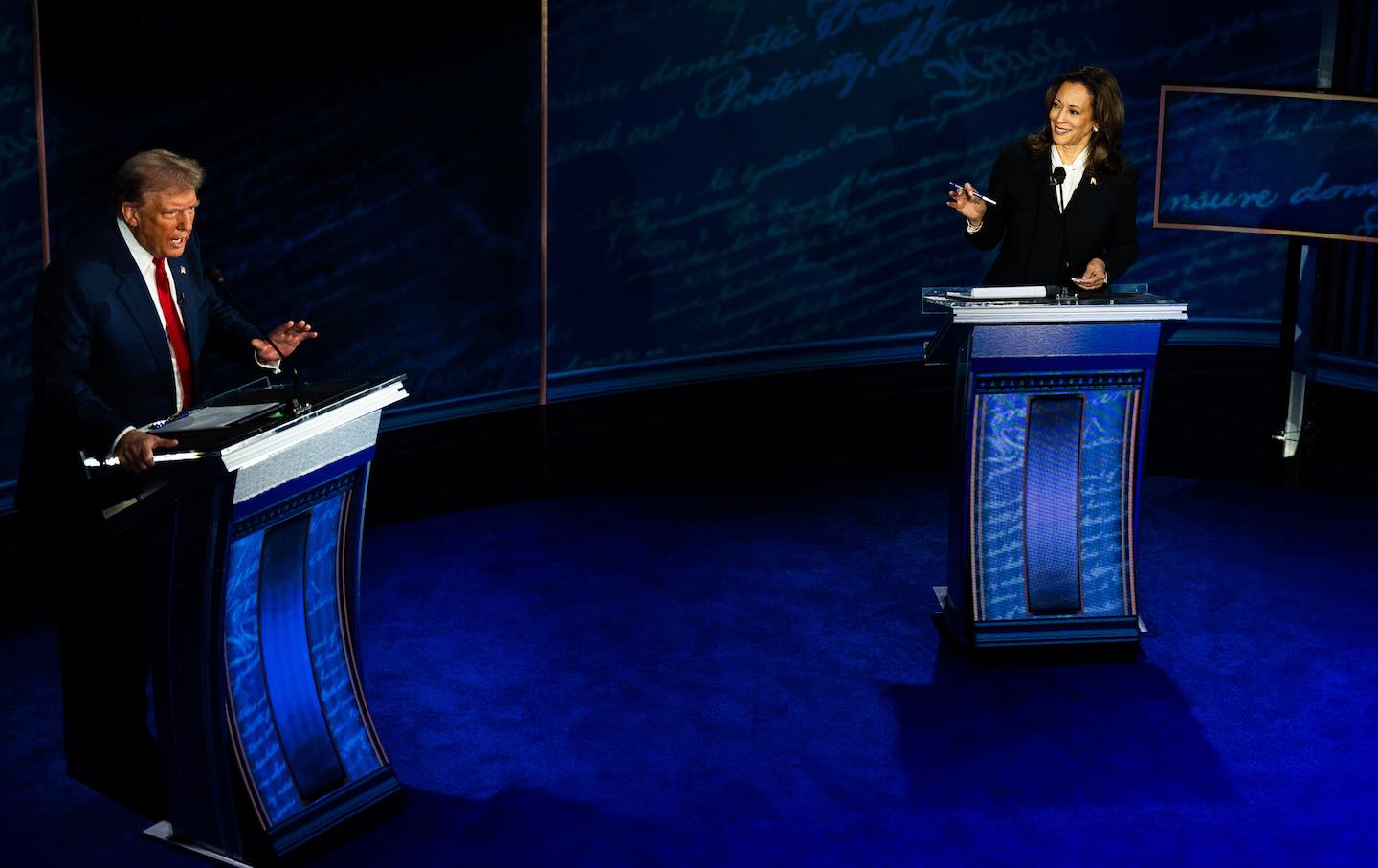
Democratic presidential candidate Vice President Kamala Harris and former president and Republican presidential candidate Donald Trump during the first presidential debate at National Constitution Center in Philadelphia on September 10, 2024.
(Photo by Demetrius Freeman / The Washington Post via Getty Images)
Vice President Kamala Harris was the only presidential candidate on the debate stage on Tuesday night who presented accurate facts about abortion. Harris reminded voters that currently “in over 20 states there are Trump abortion bans which make it criminal for a doctor or nurse to provide health care. In one state it provides prison for life.” She added that these bans “make no exception even for rape and incest.” And while she vowed only to “reinstat[e] the protections of Roe v. Wade,” rather than echoing advocates who have made it clear that the 1973 Supreme Court decision did not go far enough to protect abortion access, she pointed to recent cases in which people facing pregnancy complications were forced to seek abortions to make her argument that no one should be told what to do with their own body.
When asked about abortion, Donald Trump made claims that are not based in reality. Vice President Harris (and debate moderator Linsey Davis) quickly fact-checked his ridiculous lie that a former West Virginia governor said that “[when] a baby [is] born, [then] we will decide what to do with the baby. In other words, we’ll execute the baby.” States do not legally allow the execution of newborn babies. To be crystal clear, there is no such thing as abortion after birth, and there is no state in this country that allows this scenario.
But the moderators’ questions, the candidates’ answers, and the public response to all of it serve as an important reminder that this election will be a pivotal moment in history for reproductive rights—and will likely bring large numbers of people out to vote in order to support and protect the right to abortion. It’s not just the top of the ticket either. Voters in 10 states will have the chance to vote on abortion ballot measures.
More on the Debate
For me, personally, as a queering reproductive justice advocate—and someone who has had to explain my own needs to doctors and legislators alike—Tuesday night’s debate reminded me that there is still so much work to do at the intersection of reproductive justice and LGBTQIA+ liberation. For one, there was no mention of the reality that people who do not identify as women, such as transgender men and gender-nonconforming people, also have—and need access to—abortion. Instead, the conversation solely focused on “her” body and “her” decision.
Yes, abortion is a women’s rights issue. Importantly, one in four women have had an abortion. Women need access to abortion—and so do all people who can get pregnant who want to have an abortion.
I popularized the term “queering reproductive justice”—and even wrote a book about it—to shine a light on how different fundamental issues intersect with LGBTQIA+ rights and justice, such as the role safe and healthy environments play in ensuring that LGBTQIA+ individuals can live without barriers or discrimination and absent state violence. I also emphasize the importance of religious pluralism and ensuring that religious exemptions do not harm anyone trying to access healthcare, housing, or institutions like marriage.
In my book, I present queering reproductive justice as an approachable framework aimed at building community across social movements—including those promoting voting rights and those fighting for a living wage for workers and the ability to accumulate wealth. This framework is centered around the lived experiences and reproductive needs of LGBTQIA+ individuals and communities so that their rights and needs are prioritized in all progressive spaces, when that has not always been the case. This theory’s ultimate goal is to ensure that LGBTQIA+ liberation occurs as all other rights and freedoms are achieved. If LGBTQIA+ communities are not seen as stakeholders in all fights for justice, our communities will never be free.
The queering reproductive justice framework merges reproductive justice and LGBTQIA+ liberation, and ultimately “demands that all people have (1) the right to not partner with others and to not have a child; (2) the right to create a family of one’s choosing and to partner with one or more consenting persons, regardless of one’s sexual orientation, gender identity, or sexual expression; as well as the right to have a child and build a family without regard to traditional forms of conception, pregnancy, birthing, or two-parent childrearing, and (3) the right to raise oneself, and to raise one’s family, in safe and healthy environments absent stigma, discrimination, and systemic institutional oppression.”
Put simply, the queering reproductive justice framework aims to guarantee that everyone has the ability to love and to create the families of one’s choosing, and has the resources and support to do so. In addition to having children, or not having children, this framework supports all forms of consensual partnership including marriage, non-marital partnerships, romantic partnerships, non-romantic companionship, and even families of one. All family dynamics deserve to be equitably resourced by the government, and through law and policy, without the need for traditional marriage.
Reproductive justice will only be achieved if the needs of LGBTQIA+ folks are centered and considered to be a vital piece of the advocacy puzzle, because our rights are tied up with one another. When a trans man is able to receive unimpeded access to birth control, so will a cisgender woman. When a queer couple is able to adopt a child, then adoption for all families will be easier to access. And when a queer person is able to work in an office without sexual or gender discrimination, all people in that workplace benefit. Similarly, LGBTQIA+ liberation will only occur if reproductive justice—and access to basic healthcare needs like abortion, contraception, and in vitro fertilization—is included in the fight for LGBTQIA+ freedom.
The presidential debate between Kamala Harris and Donald Trump cemented into history the vital role that reproductive rights play in people’s lives. But the fight doesn’t end there. Until there is unfettered access to abortion for anyone who wants one, sexual and reproductive rights will continue to be in jeopardy for everyone.
In case you were waiting for one, this is your invitation to join this fight with other queering reproductive justice advocates. It is my deepest hope that you do. After all, we are the ones we’ve been waiting for.
Hold the powerful to account by supporting The Nation
The chaos and cruelty of the Trump administration reaches new lows each week.
Trump’s catastrophic “Liberation Day” has wreaked havoc on the world economy and set up yet another constitutional crisis at home. Plainclothes officers continue to abduct university students off the streets. So-called “enemy aliens” are flown abroad to a mega prison against the orders of the courts. And Signalgate promises to be the first of many incompetence scandals that expose the brutal violence at the core of the American empire.
At a time when elite universities, powerful law firms, and influential media outlets are capitulating to Trump’s intimidation, The Nation is more determined than ever before to hold the powerful to account.
In just the last month, we’ve published reporting on how Trump outsources his mass deportation agenda to other countries, exposed the administration’s appeal to obscure laws to carry out its repressive agenda, and amplified the voices of brave student activists targeted by universities.
We also continue to tell the stories of those who fight back against Trump and Musk, whether on the streets in growing protest movements, in town halls across the country, or in critical state elections—like Wisconsin’s recent state Supreme Court race—that provide a model for resisting Trumpism and prove that Musk can’t buy our democracy.
This is the journalism that matters in 2025. But we can’t do this without you. As a reader-supported publication, we rely on the support of generous donors. Please, help make our essential independent journalism possible with a donation today.
In solidarity,
The Editors
The Nation


